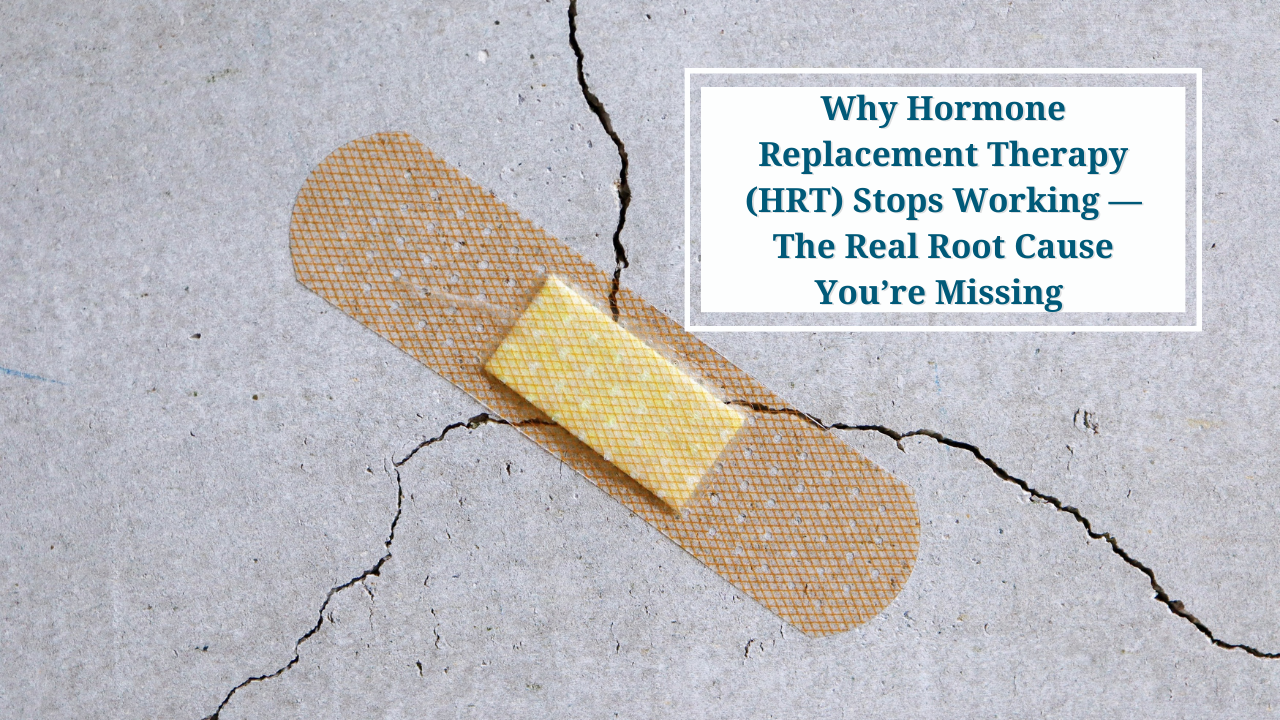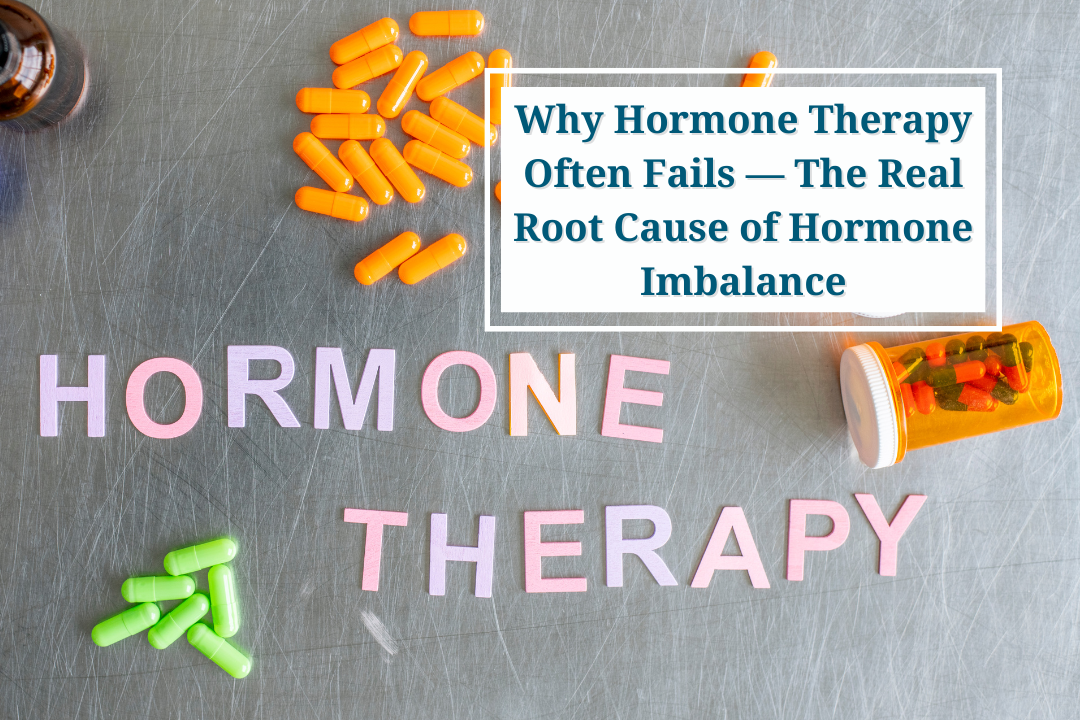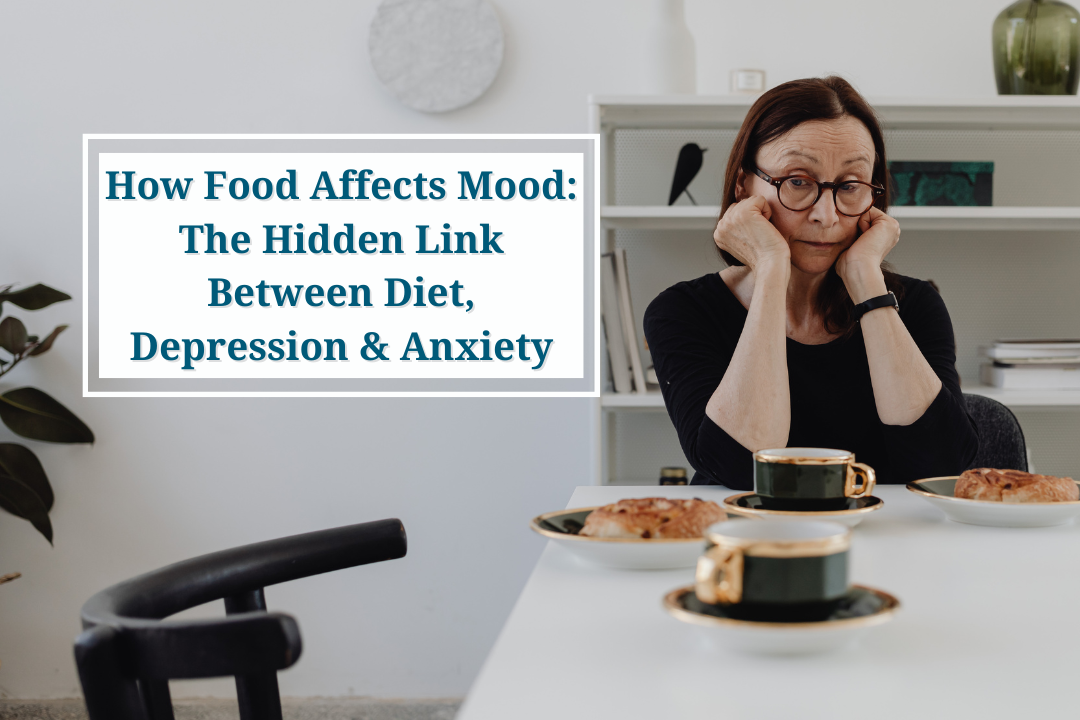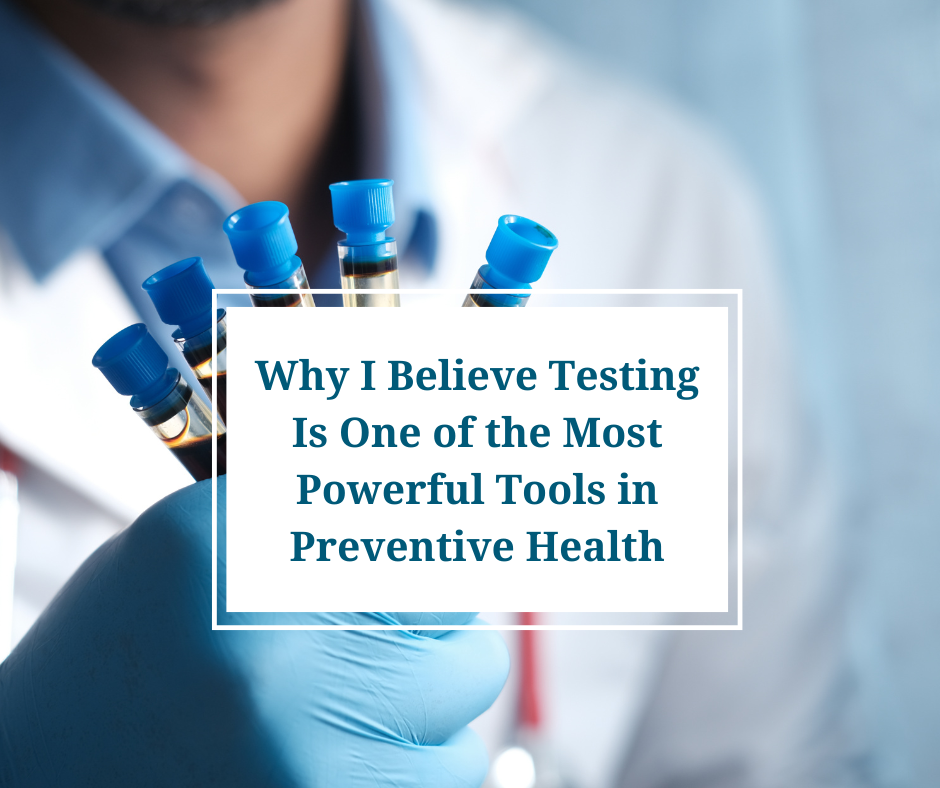
Why Your Hormones Dropped in the First Place
Hormone Replacement Therapy (HRT) is more popular than ever — but is it always the right first step? Dr. Christopher Thoma explains the hidden reasons why your hormones may have dropped, from nutrient deficiencies to protective mechanisms against abnormal cell growth.
Learn how skipping this step can cause long-term problems and how you can support your body naturally.

Why Hormone Replacement Therapy (HRT) Stops Working — The Real Root Cause You’re Missing
Are you on hormone replacement therapy (HRT) and wondering why the relief only lasts a few months? Dr. Christopher Thoma explains why many people feel great initially — only to end up needing higher doses that stop working altogether. It’s not just about replacing hormones — it’s about addressing the underlying causes of hormone imbalance.

Why Hormone Therapy Often Fails — The Real Root Cause of Hormone Imbalance
Hormone therapy might be failing you — not because hormones are “bad,” but because your cells can’t USE them.
When your mitochondria, immune, and lymphatic systems are blocked, hormone receptors shut down. Even if levels rise, your body doesn’t respond.

Why You're Getting Sick Over and Over Again – And How to Stop It
The immune system is not just your body’s guard dog. It’s also a regulator. It’s supposed to recognize friend from foe and respond appropriately. But too often, it becomes overstimulated — and that's where the trouble starts.

Sleep & Brain Detox: Why Deep Sleep Is Critical for Immune, Mitochondria & Glymphatic Health
If sleep has been elusive for you, start with the basics: honor your body’s circadian rhythm, dim lights and put screens away an hour before bed, skip alcohol and snacks late at night, and support your diet in ways that reduce inflammation. These steps don’t just help you fall asleep — they help you reach the deep sleep where healing happens.

How Food Affects Mood: The Hidden Link Between Diet, Depression & Anxiety
Feeling anxious or emotionally off? The foods you eat might be changing your brain chemistry. From dairy proteins that hit your opioid receptors to sugar highs that lead to crashes — food has a direct line to your mood. Learn how to reset your brain and your body through ancestral eating.

Why You Can’t Lose Weight — It’s Not Calories, It’s Your Immune Response
Are you doing “everything right” — tracking calories, exercising, eating “healthy” — and STILL can’t lose weight? The missing piece might not be fat at all…but immune-driven fluid retention triggered by foods that don’t agree with your body

How Digestion Controls 70% of Your Immune System.
When you eat, your body is constantly evaluating what you’ve put on your plate. Every bite you take either supports your health or asks your system to work harder to protect you. Foods that your body digests easily are processed with less effort and more benefit — nutrients are absorbed efficiently, mitochondria generate energy effectively, and your immune system stays responsive.

Why Your Food Is Making You Inflamed (And What To Eat Instead)
Modern foods can confuse your immune system and fuel inflammation. Our bodies still run on ancient biology — so eating closer to what our ancestors ate matters more than you might think.



Restoring MILA
What if your brain fog, fatigue, hormone resistance or chronic inflammation weren’t separate issues — but signs your body’s internal systems are breaking down together?


Avoiding the Trap of Chronic Inflammation: Why Your Body Isn’t Healing
Inflammation is a natural part of healing — but what happens when it doesn’t stop? If you’re still swollen or in pain weeks after an injury or flare-up, your immune system might be stuck in overdrive. Learn how to spot the shift from helpful to harmful inflammation — and what to do when your body stops healing and starts hurting.

Why ‘Boosting’ Your Immune System Can Backfire – How to Truly Balance It
Many people aim to “boost” their immune system during cold season—but at The Legacy Clinic, we believe balance is better. An overactive immune response can lead to inflammation and even autoimmune issues. Learn why calming your system may be the smarter, healthier choice this winter.

Beyond White Blood Cells: Unlocking the Power of Your Immune System
Most people think white blood cells are the whole story when it comes to immune health—but they’re just the beginning. In this post, Dr. Christopher Thoma reveals the powerful, lesser-known chemical forces that shape your immune system and how imbalances can lead to chronic issues. Learn how to take control of your health from the inside out—and join us for The Mighty Immune seminar on November 18.

Why Your Immune System Needs Balance
Your immune system is the mightiest system in your body — but “stronger” isn’t always better. Join Dr. Christopher Thoma of The Legacy Clinic in Cody, Wyoming, as he breaks down why your immune system must be balanced: the ability to attack when under siege, calm down when injured, and regulate so it doesn’t fight things it shouldn’t.

Why I Believe Testing Is One of the Most Powerful Tools in Preventive Health
We often hear patients say: “But I’m healthy — why do I need to run tests?” It’s an understandable sentiment. After all, no one wants to feel like they’re over‑doing it. Yet we believe this mindset misses a key truth: many health issues begin long before we ever feel “wrong.”

Don’t Wait Until It’s Too Late: Why Early Action Matters for Chronic Health
Many people assume that making health changes — eating better, moving more, adjusting supplements — is something you can delay. You tell yourself, “I’ll start next month,” or “It’s just not the right time.”
But here’s the problem: you’re not on flat ground. You’re on a slope. In functional health, I often think of chronic illness as a muddy slope. At first, you slip just a little. You feel aches, fatigue, blood sugar creeping upward, joints stiffening. You promise yourself you’ll catch it.

Invest in Longevity—Before You Need a Cure
Longevity isn’t about living forever. It’s about maximizing the years you do have—feeling good, staying sharp, and doing what you love. And that starts with investing early.
Investing in longevity means choosing today to eat better, move more, sleep deeper, manage stress, and eliminate toxins. It means seeing the right physicians, taking the right supplements, and avoiding what harms you—before the warning signs appear.
